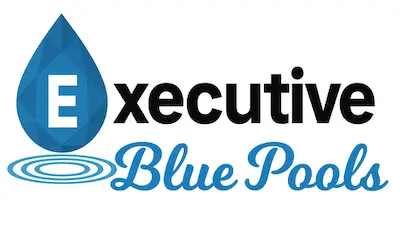
Choosing the right pool heater can feel overwhelming with so many options out there. But when it comes down to it, gas and electric heaters are the top contenders. Both have their pros and cons, and the best one for you depends on factors like your budget, where you live, and your personal preferences. This guide will break down the real costs of both heaters, giving you a clear picture to make an informed decision.
First, let’s get a basic understanding of how these heaters work. Gas heaters use either natural gas or propane to produce heat, while electric heaters use electricity. They each have their own installation and operational nuances. Read on as we dive deeper into the nitty-gritty of these heaters, including their costs, efficiency, and environmental impact.
What are Gas Pool Heaters?
Gas pool heaters are loved for their ability to heat up quickly. They burn either natural gas or propane, transferring the heat to the pool water. You can choose between propane and natural gas heaters based on what’s available in your area. Propane heaters are portable and great for remote pools, while natural gas heaters need a gas line connection.
One of the main perks of gas heaters is their speed, especially useful in colder areas or for infrequently used pools. But they do have downsides. They might not last as long as electric heaters and can be less efficient, leading to higher running costs. Plus, they have specific safety and venting requirements. Regular check-ups are essential, especially during peak swimming times.
What are Electric Pool Heaters?
Often called heat pumps, electric pool heaters are efficient, long-lasting, and eco-friendly. They don’t create heat but capture warmth from the air around them. The heater pulls in air, which passes over a coil containing a special refrigerant. This refrigerant turns the heat into a gas, which a compressor then amplifies. Finally, a heat exchanger transfers this heat to the pool water.
While they might cost more upfront, electric heaters can save you money in the long run due to their efficiency. They’re also versatile and environmentally friendly, emitting no harmful gases. But, like all heaters, they need professional installation and regular maintenance.
Investment Breakdown: Gas vs. Electric Pool Heaters
When deciding between gas and electric heaters, you need to look beyond just the purchase price. Consider installation, running, and maintenance costs too.
Gas Heaters: They might have a lower purchase price, ranging from $1,500 to $3,500. But installation can be pricey, especially if you need a new gas line. Installation can add $500 to $1,500 or more to your initial costs.
Electric Heaters: These can cost between $2,000 and $4,000 to purchase. But their installation is usually simpler and cheaper, ranging from $500 to $1,000. The right placement can affect installation costs since they need to be in a spot with good airflow and sunlight.
Choosing the right pool heater can significantly impact long-term costs, but it’s also crucial to ensure that your pool system is well-maintained.
Ongoing Costs: Gas vs. Electric Pool Heaters
Enjoying a warm pool comes with ongoing costs. Both gas and electric heaters have different energy, maintenance, and efficiency costs.
Gas Heaters: They heat up fast but can be pricier to run, costing between $200 and $400 monthly. Maintenance is also more intensive, with professional services costing between $100 and $200 per visit.
Electric Heaters: They’re more energy-efficient, costing between $50 and $100 monthly to run. Maintenance is simpler and cheaper, usually between $75 and $150 per visit.
Energy Efficiency and Environmental Considerations
When picking a heater, think about both your wallet and the planet. Gas and electric heaters have different energy efficiencies and environmental impacts.
Gas Heaters: They heat up quickly but are generally less efficient than electric heaters. Their efficiency can drop in colder weather, and they have a larger carbon footprint.
Electric Heaters: These are energy-efficient champs, especially in milder climates. They use less energy and have a smaller carbon footprint, making them a greener choice.
Choosing the Right Pool Heater for You
Your perfect pool heater depends on your unique needs and preferences. Consider your budget, energy costs, how often you use your pool, your local climate, and your environmental values.
Gas Heaters: They’re great for quick heating, especially in colder areas or for pools used occasionally. They might have a lower upfront cost but can be pricier in the long run.
Electric Heaters: They’re ideal for regular pool use in milder climates. They might cost more initially but can save you money over time with lower running and maintenance costs.
FAQs about Gas and Electric Pool Heaters
1. What is the average cost of operating a gas pool heater?
The average cost of operating a gas pool heater can range from $200 to $400 per month depending on the size of the pool, location, and heating requirements.
2. How does the operational cost of electric pool heaters compare?
Compared to gas pool heaters, electric heaters typically have a lower operational cost, ranging from $50 to $150 per month. However, this cost can vary based on the same factors mentioned.
3. Will the installation price for gas and electric pool heaters be significantly different?
Yes, generally, installing a gas pool heater tends to be more expensive than an electric one, due to factors such as additional plumbing and potential gas line installation.
4. How do gas and electric pool heaters compare in terms of maintenance costs?
Gas heaters often require more frequent maintenance than electric heaters, thus potentially leading to higher costs over time. This includes more regular inspections and part replacements.
5. Are there environmental cost considerations between gas and electric pool heaters?
Yes, electric pool heaters tend to have a smaller carbon footprint compared to gas heaters. This is because they use renewable energy sources and do not emit harmful gases.
6. Are the efficiency levels of gas and electric pool heaters the same?
No, electric pool heaters are typically more efficient than gas models. They convert almost all the energy they use directly into heat, resulting in less waste.
Ready to Dive In?
If you’re considering installing or upgrading your pool heater, don’t navigate these waters alone. Let the experts at Executive Blue Pools guide you. With years of experience and a commitment to customer satisfaction, we’re here to ensure you make the best choice for your pool needs.
If you enjoyed this article, check out these other articles regarding Pool Heaters:
Pool Heater Types: Decision Making Guide for the Pool Owner
Gas vs. Electric Pool Heaters: What's the Best Choice for Warm Climates?
